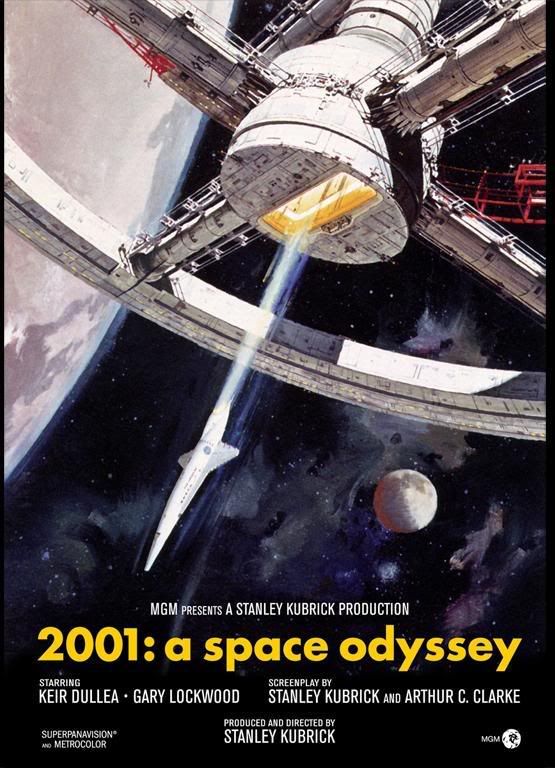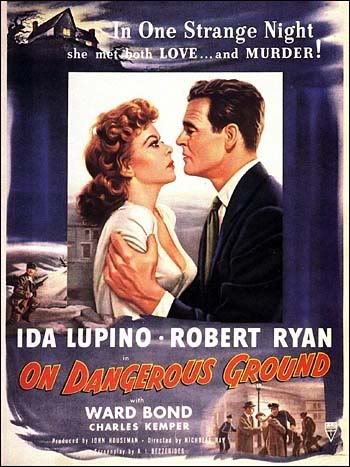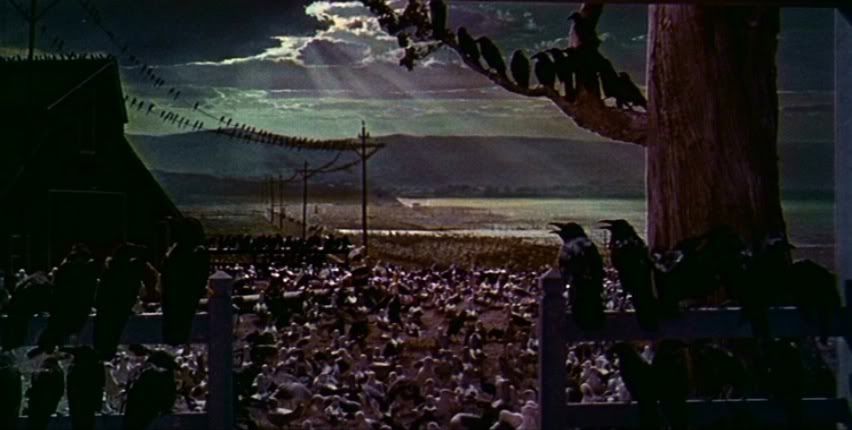

Here I shall list ten films, always that arbitrary arbiter, that have directed my thought (or marked certain passages) in the most significant ways during my young life in the cinema. I list them here in chronological order of their impression on my forever impressionable brain.
Mean Streets, Martin Scorsese, 1973
The first film to show me how much music matters, and the first film I can remember feeling aroused by during its violence. Luckily, it still feels "strong" and, as I age, it appreciates for different and exciting reasons. As with all that follow, it continues to teach me things.
Manhattan, Woody Allen, 1979
Woody taught me to look beyond the center of the frame for the first time, and that Gershwin still matters, even in fantasy-land. Honestly? I could easily have put The Godfather: Part II here for similar reasons tied to Gordon Willis.
2001: A Space Odyssey, Stanley Kubrick, 1968
It feels a little dishonest to place this film this early in my personal timeline but, as I said with the Scorsese above, this film continues to yield new sights with every screening. Seeing it for the first time in 70mm at the Castro Theatre in San Francisco was perhaps the greatest cinema experience I can remember as it fulfilled every desire this always-learning young cinephile could think of; a year later it did new things. Since then I have yet to look at it at home. It's a cathedral unto itself. (Also, does it belong in American Film? You tell me. It's so seminal that I felt I had to squeeze it in.)
The Birds, Alfred Hitchcock, 1963
My chosen banner image should have alerted you to the possibility of this choice, of course, and, again, this film did not tell me all it could and would when first I saw Tippi's cheekbones cringe in terror. Now it's easily my favorite Hitch for more than just my undying affection for the wounded soul underneath that blithe, aloof facade Ms Hedren erects. For instance: the lack of score! the crisp editing! the untidy psychology! the unreliability of the signifier! (Here I'm assuming that a Hollywood film by an English director will count for an American Film.)
Rushmore, Wes Anderson, 1998
Encountered late in high school, and after first seeing The Graduate, this update (of sorts) on that Nichols-Hoffman classic meant a lot to my sensitive desire to be loved as I am, just like any number of myopic teenagers. However, it still makes me laugh, and, as I learned a few other things from films below this one on this list, it has plenty to offer—just like its star character.
Mulholland Dr, David Lynch, 2001
Saw this one five times in theatres. Didn't know what to do with it other than tell everybody I thought it the most brilliant thing ever. It took me a good six years to really grasp what I sensed. And then INLAND EMPIRE came out...
The Conversation, Francis Ford Coppola, 1974
Seen anew after reading Walter Murch and Michael Ondaatje's book, The Conversations, this was as big in teaching me how to "look" at a film's sound as was the Lynch I mention just above.
The New World, Terrence Malick, 2005
As I wrote in this recent piece for The House Next Door, this is perhaps the most important film for my development as a person invested in cinema (as a viewer, as a writer, as a thinker).
The Awful Truth, Leo McCarey, 1937
Encountered in conjunction with my first exposure to Stanley Cavell's extraordinary (and extraordinarily influential) The Pursuits of Happiness, it was unavoidable I would fall in love with all this lovely thing has to offer. It may not be as "good" as a few others Cavell writes about in that book, but, as it is the final film discussed, its significance is weighted that much more by all that precedes it one's life with the book (and films), or had preceded it mine.
On Dangerous Ground, Nicholas Ray, 1952
A helluva lesson in phenomenology. I need to see it again so I can write more. Also: a helluva lesson that Nick Ray does, in fact, live up to Godard's proclamation (about Bitter Victory): this is cinema.

I'm certain your trajectories will teach me things in turn! So, please, share yours in the comments! Or, if you like, at your own blogs!




I always thought Rushmore would make a great double bill with Animal House.
ReplyDeleteThanks for stopping by to comment. I never thought of that pairing. Can you say more? Something about perpetual adolescence? Or is just that both are hilarious "school" movies?
ReplyDeleteReally? Because I always thought it should've been called Cruel Story of Youth.
ReplyDeleteI also saw 'Mulholland...' five times - once in each theater. I think of that and 'Rushmore' as two examples of pretty flawless filmmaking. What did you think of 'Inland Empire'?
ReplyDeleteI think _INLAND EMPIRE_ does to _Mulholland Dr_ what _Mulholland Dr_ did to _Lost Highway_. Sometimes, though, I think the _Twin Peaks_ film is the best thing he's ever done. In fact, as luck would have it, my best friend watched it the other day unbeknownst to me and immediately sent me an email: "I was physically frightened during that movie!" Very cool.
ReplyDelete